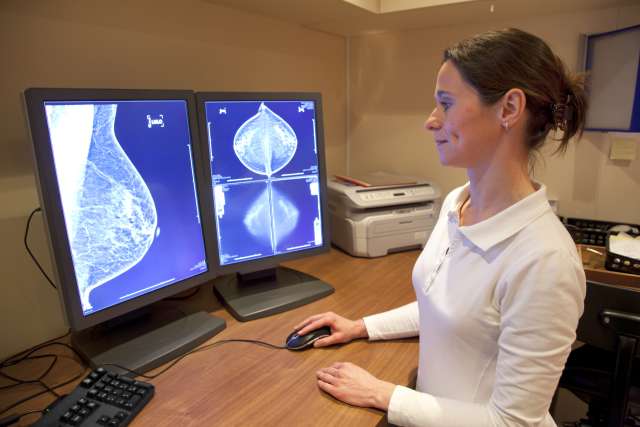Pancreatic cancer isn’t common. It accounts for only 3% of all cancers diagnosed in the United States, according to the National Cancer Institute. But it’s a disease that doesn’t typically cause symptoms in early stages, so most people (80%) don’t realize they have it until it’s advanced. At later stages, pancreatic cancer is challenging to treat.
Experts typically don’t recommend screening for pancreatic cancer because the average lifetime risk of developing it is low (1%). But if you know you’re at high risk for pancreatic cancer, there are ways to detect it early, when it’s more treatable.
Who is at high risk for pancreatic cancer?
Determining cancer risk involves examining your environment, lifestyle, health and family health history. Some risk factors for pancreatic cancer can be changed, while others cannot:
Pancreatic cancer risk factors within your control
Most pancreatic cancer diagnoses happen after age 65. That means you may be able to change your lifestyle while you’re younger to reduce your risk. Lifestyle-related risk factors for pancreatic cancer include:
Smoking and tobacco use
Smoking cigarettes puts you at higher risk for most types of cancer, and it doubles your risk for pancreatic cancer. Your risk also increases if you smoke cigars or use smokeless tobacco products. The good news is that your risk for pancreatic cancer drops when you stop smoking.
Body weight
Being overweight or having obesity increases the risk of pancreatic cancer. You are 20% more likely to develop pancreatic cancer if your body mass index (BMI) is 30 or higher, according to the American Cancer Society. Even if you aren’t overweight, gaining weight as an adult, especially around the waistline, can increase your risk.
Diabetes
Pancreatic cancer tends to occur more often in people with Type 2 diabetes, and experts aren’t entirely sure why. Some believe the connection is weight-related — overweight/obesity is a risk factor for both Type 2 diabetes and pancreatic cancer. There is no conclusive information establishing a correlation between Type 1 diabetes and pancreatic cancer.
Non-hereditary pancreatitis
Pancreatitis is ongoing inflammation of the pancreas. Over time, chronic inflammation can make you more likely to develop pancreatic cancer. Pancreatitis that is not inherited can develop in people who smoke or drink heavily — two lifestyle factors within your control.
Chemical exposure
Some occupational environments expose workers to dangerous chemicals. Over time, that exposure can increase the risk for certain cancers. The chemicals used in dry cleaning and metalworking are two types of toxins that may increase pancreatic cancer risk.
Pancreatic cancer risk factors you cannot change
Some pancreatic cancer risk factors are beyond your control. Understanding and identifying those risk factors may prompt you to take preventive measures or screen for cancer at a younger age. Risk factors you cannot modify include:
Age
The older you are, the higher your risk of pancreatic cancer. Almost all people diagnosed with it are older than 45. The average age of diagnosis is 70.
Sex
People assigned male at birth (AMAB) are at slightly higher risk of developing pancreatic cancer than people assigned female at birth (AFAB). Some experts connect the elevated risk with the fact that people AMAB tend to use tobacco products more than people AFAB.
Race/ethnicity
Black Americans develop pancreatic cancer more often than white Americans, but the reason remains unclear. One theory is that Black adults are also at higher risk for developing Type 2 diabetes and obesity — risk factors associated with pancreatic cancer.
Inherited gene mutations and syndromes
Most people who develop pancreatic cancer do not have a family history of it, but it can run in families. Inherited pancreatic cancer accounts for up to 10% of all pancreatic cancer cases.
Hereditary gene mutations and syndromes that increase the risk of pancreatic cancer include:
- BRCA1 and BRCA2 mutations, commonly associated with Hereditary Breast and Ovarian Cancer Syndrome, can also increase the risk of pancreatic cancer. People with a BRCA2 mutation have up to a 10% lifetime risk of developing pancreatic cancer.
- Cystic fibrosis causes chronic pancreatitis and other pancreatic issues. People with cystic fibrosis are up to six times more likely to develop pancreatic cancer.
- Familial atypical multiple mole melanoma (FAMMM), commonly linked to melanomas of the skin and eyes, makes you up to 22 times more likely to develop pancreatic cancer.
- Hereditary pancreatitis gives you a 40% to 55% lifetime risk of pancreatic cancer.
- Lynch syndrome (hereditary non-polyposis colorectal cancer, or HNPCC), which can occur because of MLH1 or MSH2 gene defects, is associated with a ninefold increased risk of pancreatic cancer.
- PALB2 mutations, linked to hereditary breast cancer, exist in up to 3% of familial pancreatic cancer cases.
- Peutz-Jeghers syndrome, associated with polyps in the digestive tract, gives you a 10% to 35% risk of developing pancreatic cancer.
Understanding your risk for pancreatic cancer
The first step in identifying your risk for any cancer type is contacting your primary care physician. They can provide you with an overall assessment.
If a first-degree relative — a parent, sibling or child — develops pancreatic cancer, encourage them to test for genetic mutations. If a known mutation exists in your family’s health history, a genetic counselor can help. They can discuss the process of genetic testing, explain your options and help you decide whether testing is right for you.
There are imaging tests to help people at high risk for pancreatic cancer screen for cancer. CT scans, MRI scans and endoscopic ultrasound may detect pancreatic cancer early.



